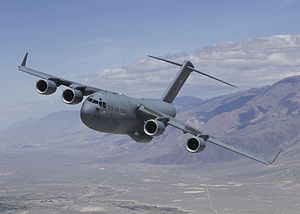Change the conversation, support rabble.ca today.
Canada has joined another foreign military intervention. This time in the West African country of Mali, where at least 11 civilians were killed in French bombing raids that began over the weekend.
Harper was forced to disclose the details of Canada’s involvement yesterday, because of a tweet by the president of Mali. No, seriously. The Ottawa Citizen reports:
A tweet by the president of Mali forced the Conservative government to admit Monday that it has committed Canadian military forces to help support the war against al-Qaeda-linked rebels in that country.
Several hours after the Citizen published an article Monday on the commitment of Canadian military logistical support to Mali’s military, Prime Minister Stephen Harper acknowledged that Canada was indeed involved.
“Today our Government received a specific request from the French Government for heavy-lift aircraft to assist in the transport of equipment into the Malian capital of Bamako, a location that is not part of any active combat zone,” Harper said in a statement.
“The Government of Canada will support our allies in this request and will be providing one RCAF C-17 transport aircraft in a non-combat role to support operations for a period of one week. The RCAF aircraft will not operate in any combat zone.”
So, what’s the big deal? It’s just going to be one C-17 transport plane to assist the French forces leading the attack. The plane will be made available for a week, and then Canada’s role will be reviewed.
Nothing to see here folks, please move along…
Except this is a big deal. Big interventions start with small deployments — with “advisors,” with “non-combat” assistance, or with “training forces” etc.
Besides, anytime Canada joins a new military intervention abroad it should be the subject of serious and sustained debate. Unfortunately foreign policy is rarely discussed, and Africa is especially off the radar — the CBC was forced to close its Africa bureau due to recent budget cuts.
Overall, it barely needs to be said, anti-war perspectives are rarely given a media spotlight in Canada. More than the details of any one intervention, in fact, the lack of real debate about Harper’s transformation of Canadian foreign policy is glaring. The development of foreign bases for Canadian troops and the big emphasis on expanding Canadian Special Forces are two crucial elements to point out: a global military presence, or at least the capacity to join “quick strike” operations anywhere around the globe, is considered an essential part of keeping the world safe for the interests of Canadian capital. (Note: Canadian gold mining companies have operations in Mali.)
All this to encourage some serious reflection on this (so far) light deployment to Mali. Here are some useful sources of information.
– The government in Mali, the people French airstrikes and troops are helping to attack Islamist forces in the north, came to power in a coup d’etat — a small fact that is remarkably absent from many of the reports on the intervention. There have really been two coup d’etats in the past year, the first last spring and another one in December.
– For French readers, a great place to start to catch up on Mali is the archives of Le Monde Diplomatique, one publication which pays close attention to West Africa and especially to France’s neo-colonial role there. An article by Alain Gresh warns of the ‘forgotten lessons of Afghanistan,’ as France sends up to 2500 troops to Mali at the very same time as it winds up its part in the ignominiously failed intervention in Afghanistan.
– Owen Jones has a piece in the UK Independent about the relation of events in Mali to last year’s war against Libya.
– Glenn Greenwald takes this further, putting Mali in the context of more than a decade of the ‘war on terror,’ breaking it down into five points: “First, as the New York Times‘ background account from this morning makes clear, much of the instability in Mali is the direct result of Nato’s intervention in Libya… Second, the overthrow of the Malian government was enabled by U.S.-trained-and-armed soldiers who defected… In other words, the west is once again at war with the very forces that it trained, funded and armed… Third, western bombing of Muslims in yet another country will obviously provoke even more anti-western sentiment, the fuel of terrorism. Already, as the Guardian reports, French fighter jets in Mali have killed ‘at least 11 civilians including three children’… Fourth, for all the self-flattering rhetoric that western democracies love to apply to themselves, it is extraordinary how these wars are waged without any pretense of democratic process… Finally, the propaganda used to justify all of this is depressingly common yet wildly effective.”
– Although France is taking the lead, the U.S. will support their bombing of Mali; IPS reports on U.S. preparations to join the intervention.
– Today, also in the Independent, there’s an important piece by anti-war UK veteran Joe Glenton on the role of China in Mali.
– Finally, there’s a concise summary of the problem from Stop the War UK activist John Rees: ‘The West’s addiction to war is spreading terrorism, not reducing it.’
I’m sure there is a lot more useful information out there, but I hope this little compilation is useful for starters.
Sending the Canadian military anywhere is a big deal. And let’s be as honest as Greenwald: the propaganda used to justify aggressive and interventionist policies is sophisticated and effective. So it’s going to require a lot of sustained work to change the conversation.
If you have a good link for more background reading on Mali, share it in the comments here or send it my way on Twitter (@derrickokeefe), and I’ll add it to the list.
Thanks to Dylan Penner for research on this issue.
Photo: Wikipedia



